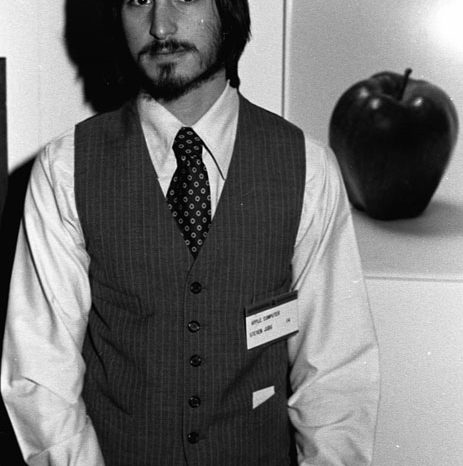Life Lessons From Steve Jobs
In a blog post entitled Bill Gates doesn’t like the liberal arts, Steve Jobs does, I noted that unlike Gates’ view that higher education spending should be a lot less about liberal arts and much more focused on job-producing disciplines, Steve Jobs believed the liberal arts were critical to business in an age of hyper-communication:
It’s in Apple’s DNA that technology alone is not enough—it’s technology married with liberal arts, married with the humanities, that yields us the result that makes our heart sing, and nowhere is that more true than in these post-PC devices.
That post closed with
File under: Who would you rather talk with, go to the museum with, go to a concert with, share books with…
On the day of his death, it’s useful to go back to Jobs’ reflections–his attempt to impart life lessons to the young. In his wonderful 2005 Stanford commencement speech, Jobs shares stories about his chance encounter with calligraphy after dropping out of Reed College and the key achievements that grew out of his getting bounced from Apple at the age of 30. He then wraps up the speech, which occurred soon after he had won his first bout with pancreatic cancer, with this reflection on death:
This was the closest I’ve been to facing death, and I hope it’s the closest I get for a few more decades. Having lived through it, I can now say this to you with a bit more certainty than when death was a useful but purely intellectual concept:
No one wants to die. Even people who want to go to heaven don’t want to die to get there. And yet death is the destination we all share. No one has ever escaped it. And that is as it should be, because Death is very likely the single best invention of Life. It is Life’s change agent. It clears out the old to make way for the new. Right now the new is you, but someday not too long from now, you will gradually become the old and be cleared away. Sorry to be so dramatic, but it is quite true.
Your time is limited, so don’t waste it living someone else’s life. Don’t be trapped by dogma — which is living with the results of other people’s thinking. Don’t let the noise of others’ opinions drown out your own inner voice. And most important, have the courage to follow your heart and intuition. They somehow already know what you truly want to become. Everything else is secondary.
Brutally uncompromising, unafraid of failure, focused, and true to an inner self nurtured on the liberal arts, Steve Jobs today represents many things to many people. Certainly, he was a tough boss to work for. But those qualities allowed him to change our world dramatically, and along the way to share a number of important lessons; not least of which on how to live.
Crossposted at Boston.com’s Rock the Schoolhouse. Follow me on twitter at @jimstergios, or visit Pioneer’s website.


